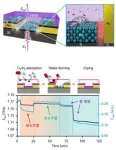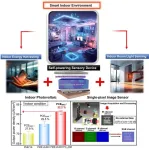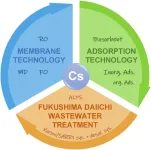High levels of sodium intake and low levels of potassium intake are widespread, and both are linked to high blood pressure (hypertension) and greater risk of stroke, heart disease and premature death. Using a salt substitute where part of the sodium chloride is replaced with potassium chloride addresses both problems at once.
Professor Alta Schutte, at The George Institute for Global Health and UNSW Sydney said that despite data from randomised controlled trials demonstrating the health benefits of potassium-enriched, sodium-reduced salt substitutes, they are rarely used.
“We found current clinical guidelines offer incomplete and inconsistent recommendations about the use of these salt substitutes,” she said.
“Given the wealth of evidence available, we feel it’s time to include salt substitutes in treatment guidelines to help address spiralling rates of uncontrolled high blood pressure around the world and reduce preventable deaths.”
Potassium-enriched salt can be used as a direct replacement for regular salt (sodium chloride) when seasoning, preserving or manufacturing foods. Importantly, while other salt reduction strategies make foods taste less salty, switching to potassium-enriched salt is undetectable by most people.
“Unwanted taste effects are the main reason why efforts to reduce salt intake have failed for more than two decades. The willingness of patients to keep using potassium-enriched salt removes that barrier, which is why it can be a game-changer,” Prof Schutte added.
A global collaboration of researchers from the US, Australia, Japan, South Africa and India reviewed 32 separate hypertension treatment guidelines - two from global organisations, five from regional organisations and 25 from country organisations - published between 1 January 2013 and 21 June 2023.
They found all guidelines referred to sodium reduction, with most recommending reducing salt intake. Many also recommended increasing dietary potassium intake, but only two - the Chinese and European guidelines - made a specific recommendation for using potassium-enriched salt.
Dr Tom Frieden, President and CEO of Resolve to Save Lives, a global public health organisation focused on preventing 100 million deaths from cardiovascular disease, said that the number of people living with hypertension had doubled in the past 30 years to about 1.3 billion.
“High blood pressure kills more than ten million people every year - almost 20 people every minute. Twenty percent of these deaths can be linked to a single culprit: eating too much salt,” he said. “Based on the evidence, there is little doubt that most patients with hypertension and their families should reduce their overall salt intake and, when choosing to consume salt, should switch from regular salt to potassium-enriched salt. This will help reduce blood pressure and protect against serious complications such as stroke and premature death.”
Dr Frieden emphasized the shift required to our food environment. “As a society, we must prioritize availability and accessibility of low-sodium, potassium-enriched salts - at home, in restaurants, and in grocery stores. These products should not be marketed or priced as a luxury. Low-sodium, potassium-enriched salt can become the new default.”
Another barrier to uptake has been concerns about causing elevated levels of potassium in the blood (hyperkalaemia) in people with advanced kidney disease.
Professor Bruce Neal, Executive Director at The George Institute Australia and Professor of Clinical Epidemiology at Imperial College London, said it is clear that patients with advanced kidney disease should not use potassium-enriched salts, but this applies to a very small proportion of the population, and these patients are already recommended to avoid salt intake.
“No issues with serious harm from hyperkalaemia were recorded in any of the trials to date, though all were done in clinical settings. Our recommendation for use in hypertension is based on patients being managed by a healthcare worker. Healthcare workers know not to recommend potassium-enriched salt in the presence of kidney disease and risks for these patients can be avoided.”
The authors argued that given potassium-enriched salt is one of the few dietary interventions patients comply with long-term, it is logical to at least consider the use of potassium-enriched salt for all those with hypertension.
“We strongly encourage clinical guideline bodies to review their recommendations about the use of potassium-enriched salt substitutes at the earliest opportunity – if the world switched from using regular salt to potassium-enriched it would prevent millions of strokes and heart attacks every year at very low cost,” added Prof Schutte.
More on sodium and potassium intakes
Mean global sodium intake was recently estimated to be 4.3g/day, or about 10.8 g/day of salt Sodium reduction is listed as a ‘best-buy’ chronic disease intervention by the WHO, proposing that all member states reduce mean population intake by 30% by 2025, with a target maximum intake of 2.0g/day sodium (5.0g/day salt) The most recent estimate for mean global potassium intake is about 2.3g/day, falling below the WHO recommended intake of 3.5g/day, particularly in India (approximately 1.0g/day), China 1.4g/day and West Africa 1.8g/day More on proposed recommendations
Authors proposed the following wording for inclusion in clinical guidelines for blood pressure control:
Strong recommendation for patients with hypertension – Potassium-enriched salt with a composition of approximately 75% sodium chloride and 25% potassium chloride should be recommended to all patients with hypertension, unless they have advanced kidney disease, are using a potassium supplement, are using a potassium sparing diuretic or have another contra-indication.
Conditional recommendation for the general population – If you have to add salt to foods, potassium-enriched salt with a composition of approximately 75% sodium chloride and 25% potassium chloride can be recommended for use by the general population in settings where there is a low likelihood that people with advanced kidney disease (stage 4-5) will be undiagnosed by the health system and contraindications to use can be printed on product packaging.
END





